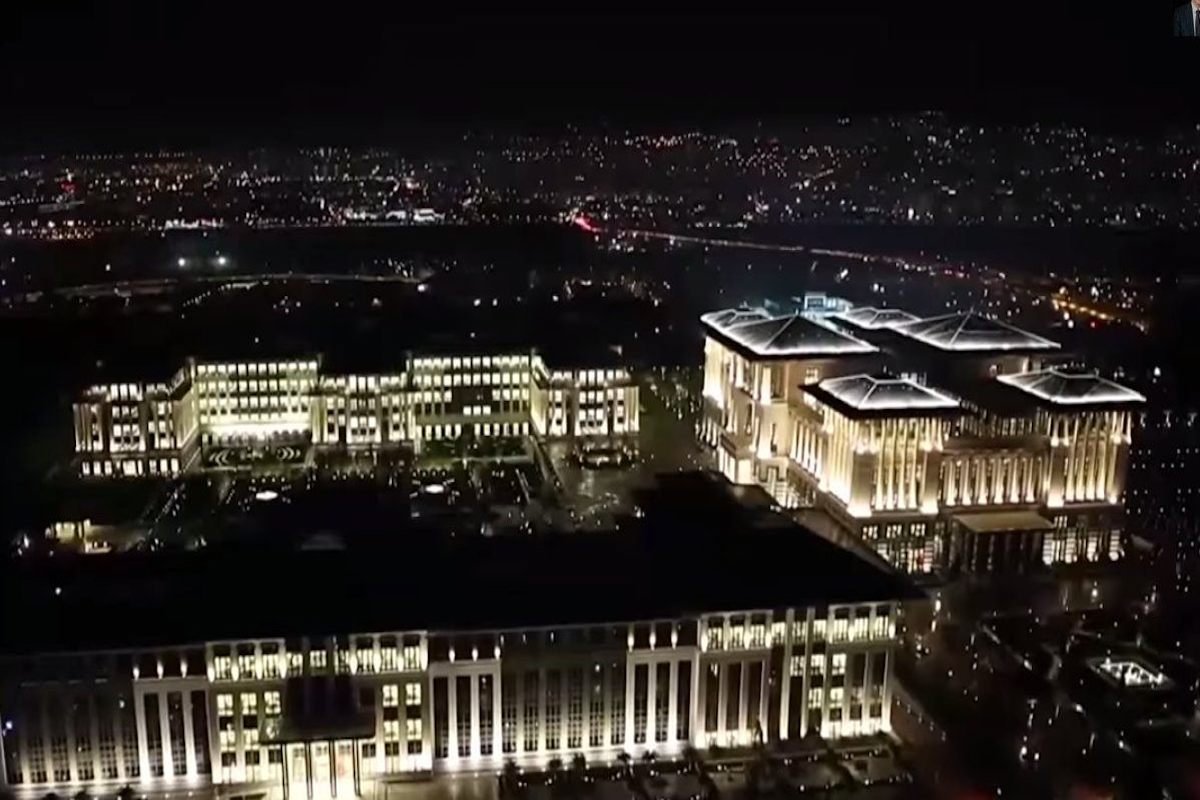The Turkish National Police Department has reportedly formed a Special Operations Command to serve at the lavish presidential palace in the capital of Ankara amid increasing signs of an economic collapse in Turkey.
Turkey’s currency, the Turkish lira, has fallen to a record low against the dollar amid concerns about an outflow of investor capital and the country’s ability to manage the situation, falling to over 4.80 to the dollar on Wednesday, down some 5 percent since Tuesday.

Known as AKsaray (White Palace), the building, which cost $615 million, spans more than 150,000 square meters (1.6 million square feet) of land and was completed in 2014.
Meanwhile, the Turkish Central Bank is under pressure to hold an emergency meeting to sharply increase rates before a scheduled monetary policy meeting on June 7 but is seen to be reluctant as President Erdoğan wants rates low. Higher rates can support a currency and ease inflation but also hinder economic growth by making borrowing more expensive.
Turkey’s energy minister, Erdoğan’s son-in-law Berat Albayrak, told the media that the recent sharp drop in the value of the lira was the result of the machinations of Turkey’s enemies, according to report by Yarın Haber on Wednesday. “The Turkish economy rests on very healthy and strong foundations,” Albayrak claimed and added, “We are talking here about a very open and clear operation against Turkey.”
“Everyone knows this: they’re cutting off their own arms, that is, foreign sources are doing themselves financial damage to affect Turkey’s political agenda through the economy,” Albayrak said. “They are trying to trim Turkey’s beard. I tell you that after June 25, Turkey’s beard will grow back, but some people’s arms will remain on the table.”
The lira has lost more than 22 percent of its value against the dollar since the start of the year. The risk is that it will increase the price of imports, making Turks effectively poorer. It could also encourage more investors to pull their money out if they expect that the value of their investments will drop as the currency declines.
However, the İstanbul Stock Exchange issued a statement late Tuesday saying it had converted all but its short-term foreign exchange needs into Turkish lira in the wake of the precipitous drop in the value of the currency. “As a sign of our trust and support in the Turkish lira, as of today our stock market has changed all its foreign exchange assets apart from what is needed in the short term into Turkish lira,” it said in a statement.
There was no mention of how much these assets amounted to, and the president of the stock exchange said he did not know when questioned in a television interview on Wednesday. The statement also blamed the currency crisis on “speculation aimed at making the country’s economy look negative before the election.”
Also on Wednesday, foreign exchange bureaus in İstanbul’s financial hub of Tahtakale turned off their signs and temporarily stopped trading on Wednesday amid the extreme dive in the price of the lira, according to a report by the Cumhuriyet daily.
The Turkish lira dropped from 4.10 to the dollar at the start of May to a high of 4.92 to the dollar on Wednesday. The lira has lost 22.3 percent of its value since the start of the year, a figure only exceeded by the Argentinian peso, which has gone down by 23.3 percent.
Also on Tuesday, Turkish Republic of Northern Cyprus (KKTC) Prime Minister Tufan Erhürman announced that radical measures for the economy are being considered, hinting that they would adopt a currency other than the Turkish Lira, the Diken news website reported.
The official currency of the KKTC is the Turkish lira, but purchasing or leasing vehicles and land can be done in British sterling. “If we are experiencing certain problems beyond our control due to the value losses of the Turkish lira, then we need to discuss these issues openly with the Turkish Republic, and we have started to talk [with them],” Erhürman told a press conference.
While not foreseeing an economic crisis in northern Cyprus, he also raised concerns about increases in the price of gasoline as well as hikes in private school tuition, which are paid in foreign currencies.
On Wednesday, the Central Bank of the KKTC banned public and private sector employees who do not receive their salaries in foreign currencies from taking out foreign currency loans in an attempt to limit the damage of the plummeting lira, according to a report by online news outlet T24.
The central bank also prohibited banks from providing 100 percent loans for designated purposes, especially the purchase of property or automobiles. The new measures mean that purchasers of vehicles can only borrow 75 percent of their total value, while those taking out mortgages can only borrow 80 percent of the property’s value.
















